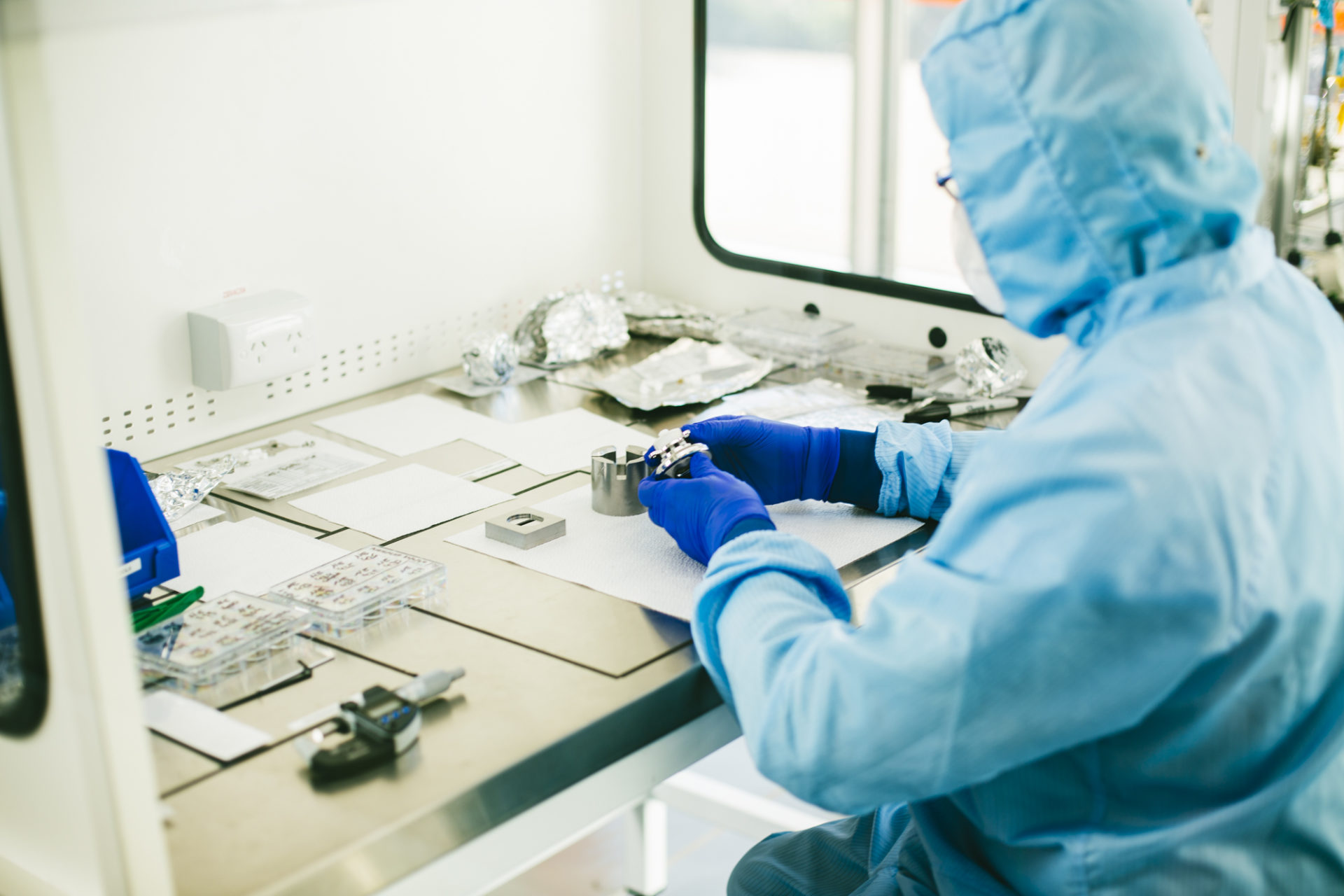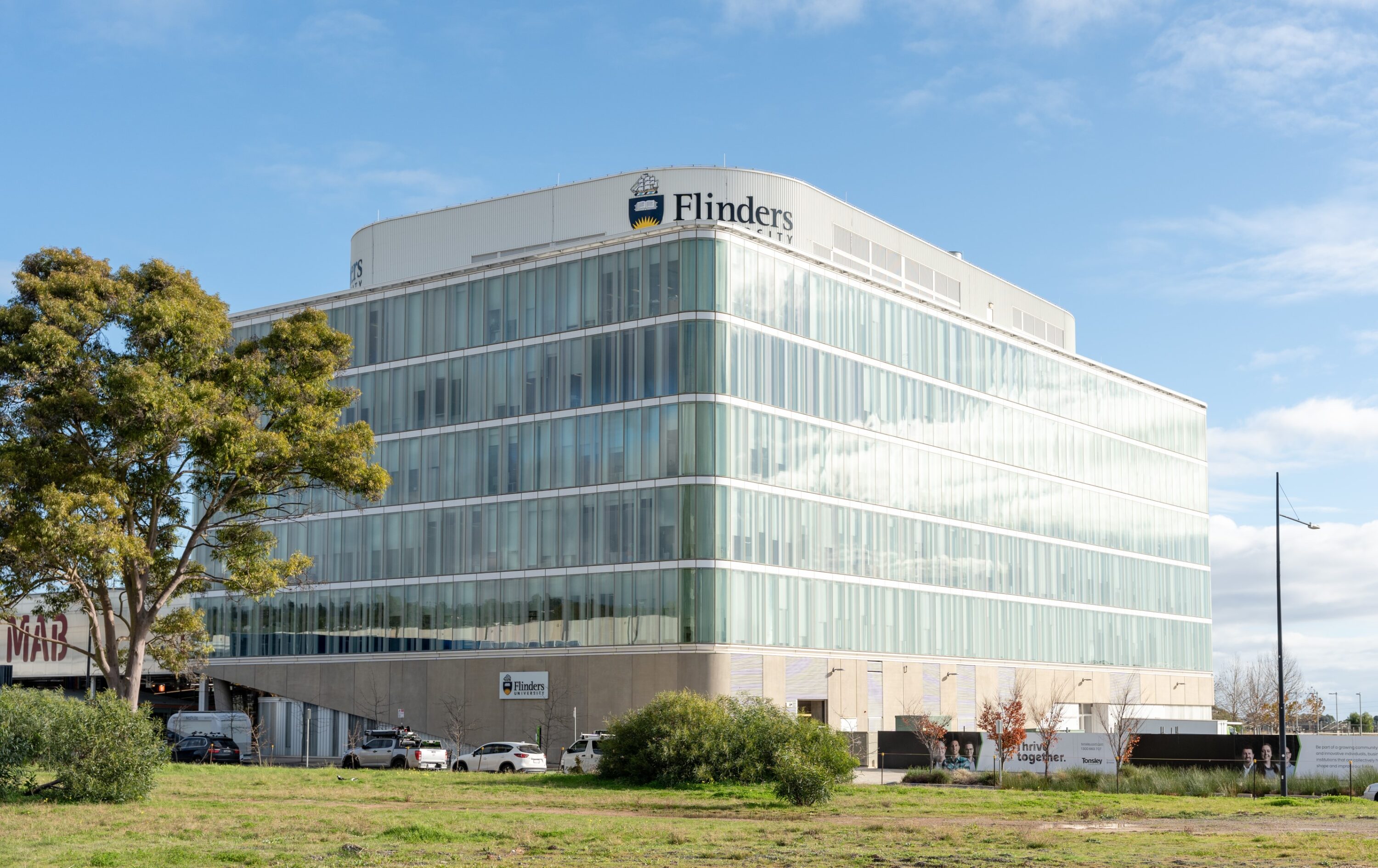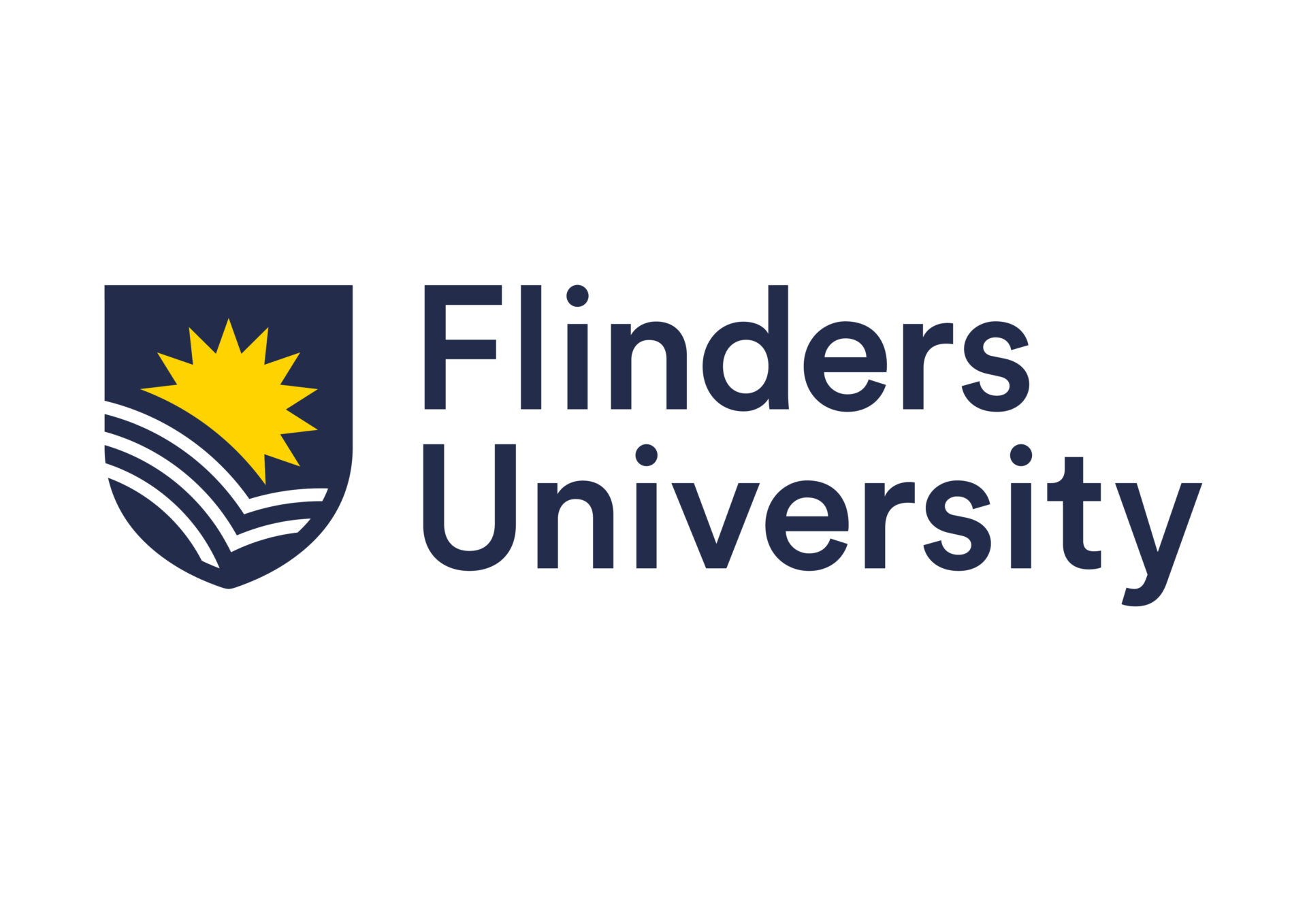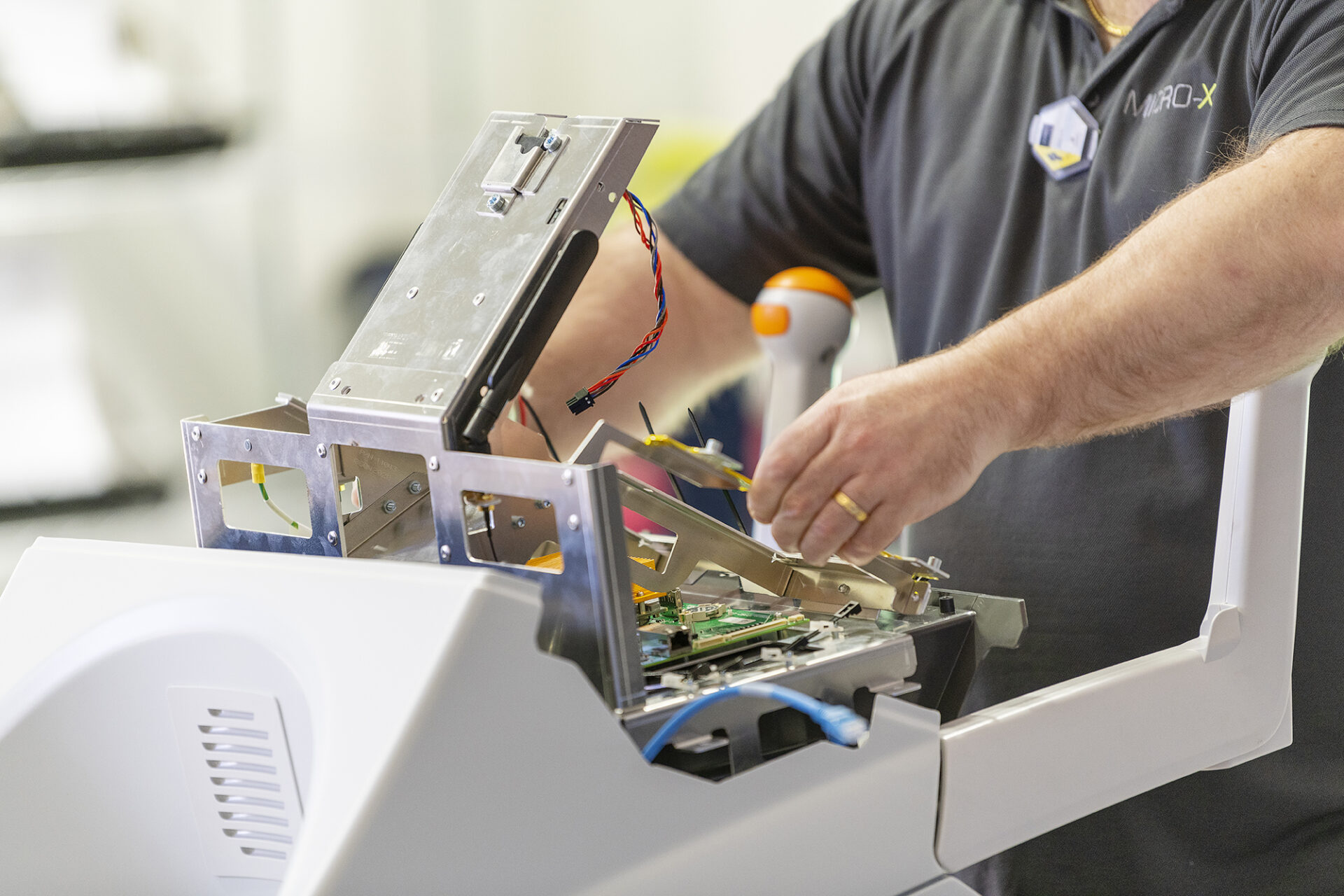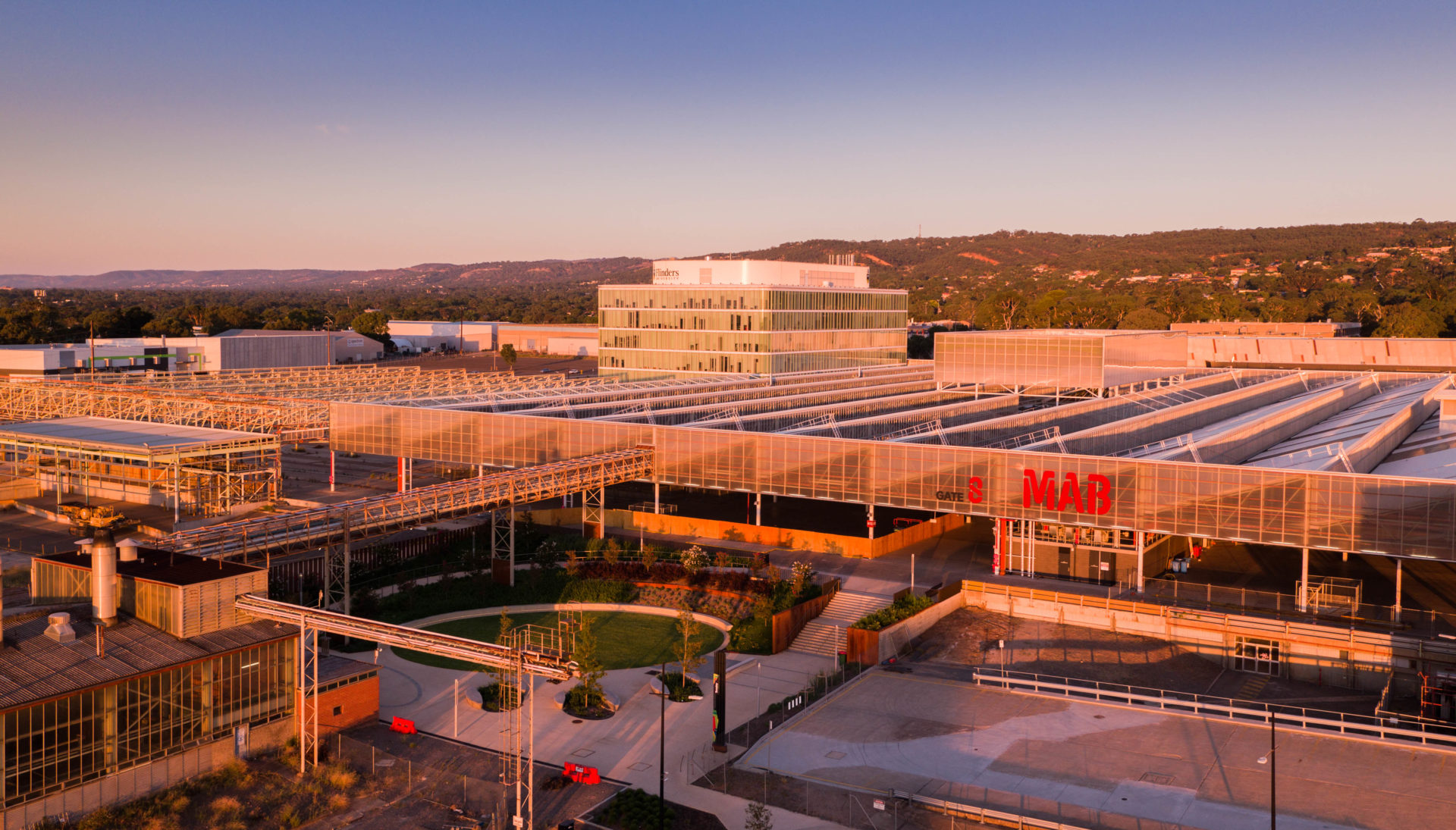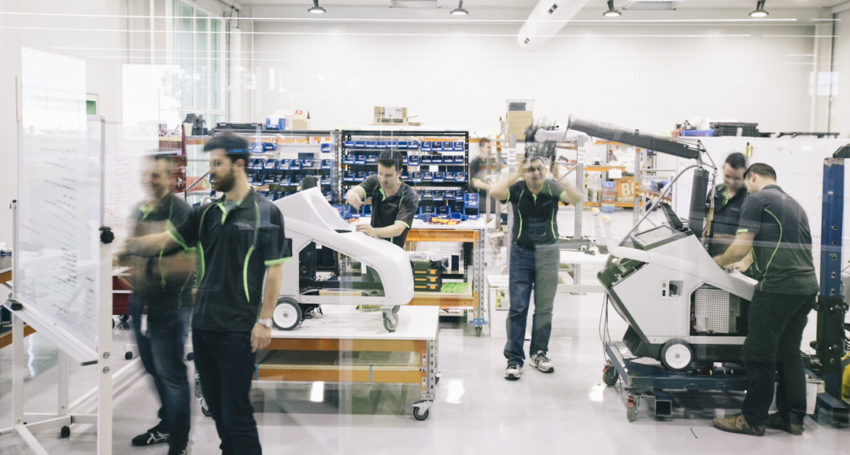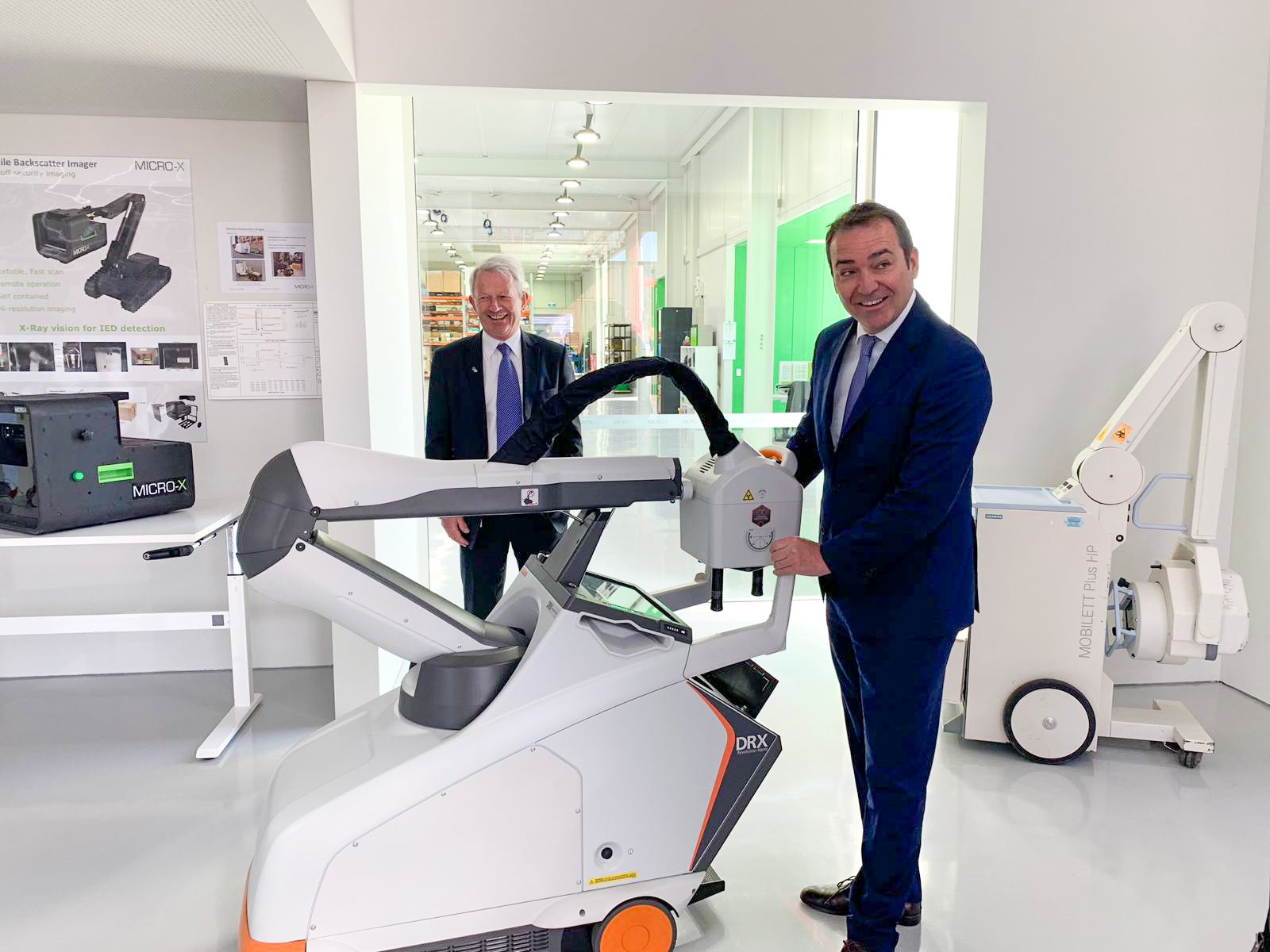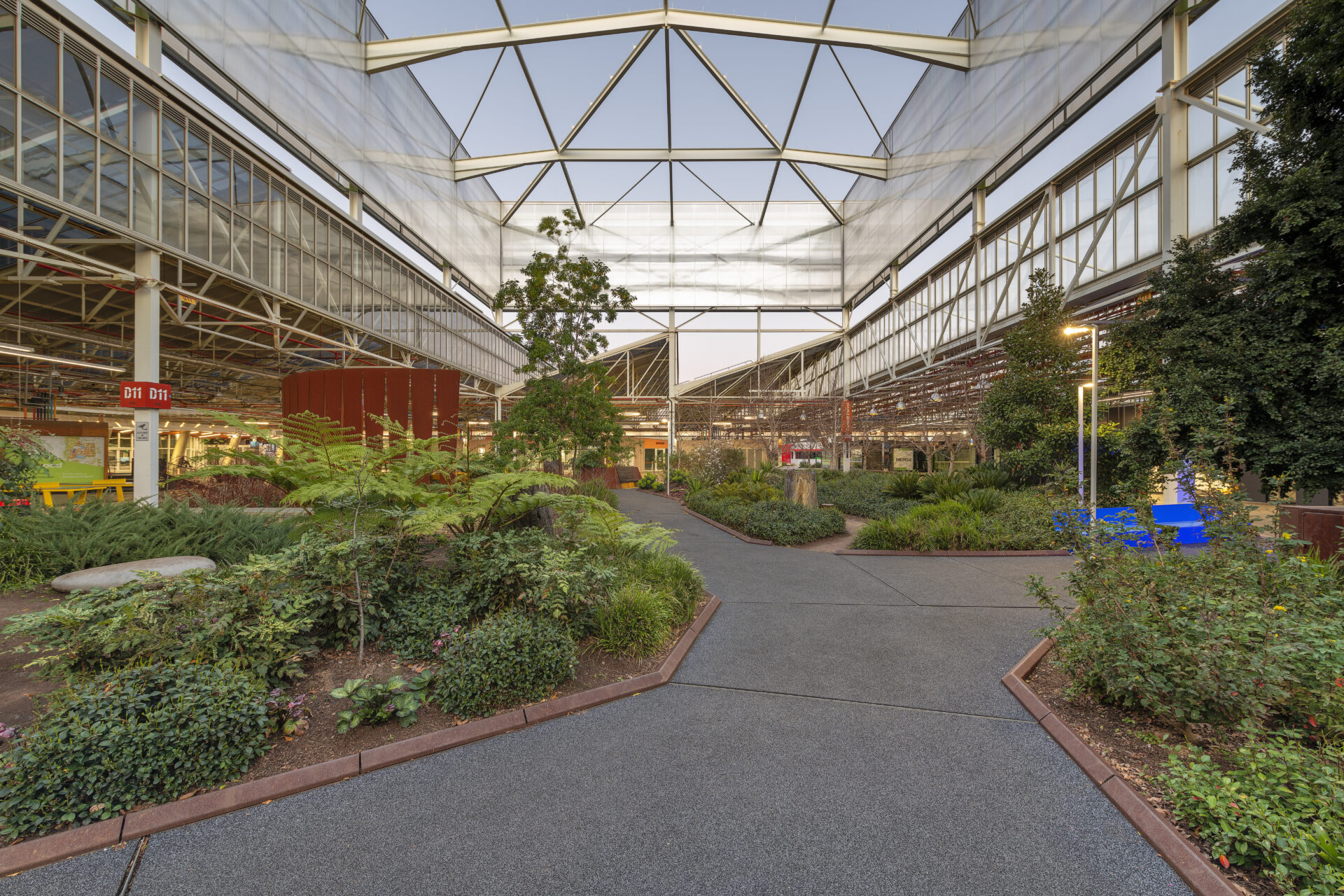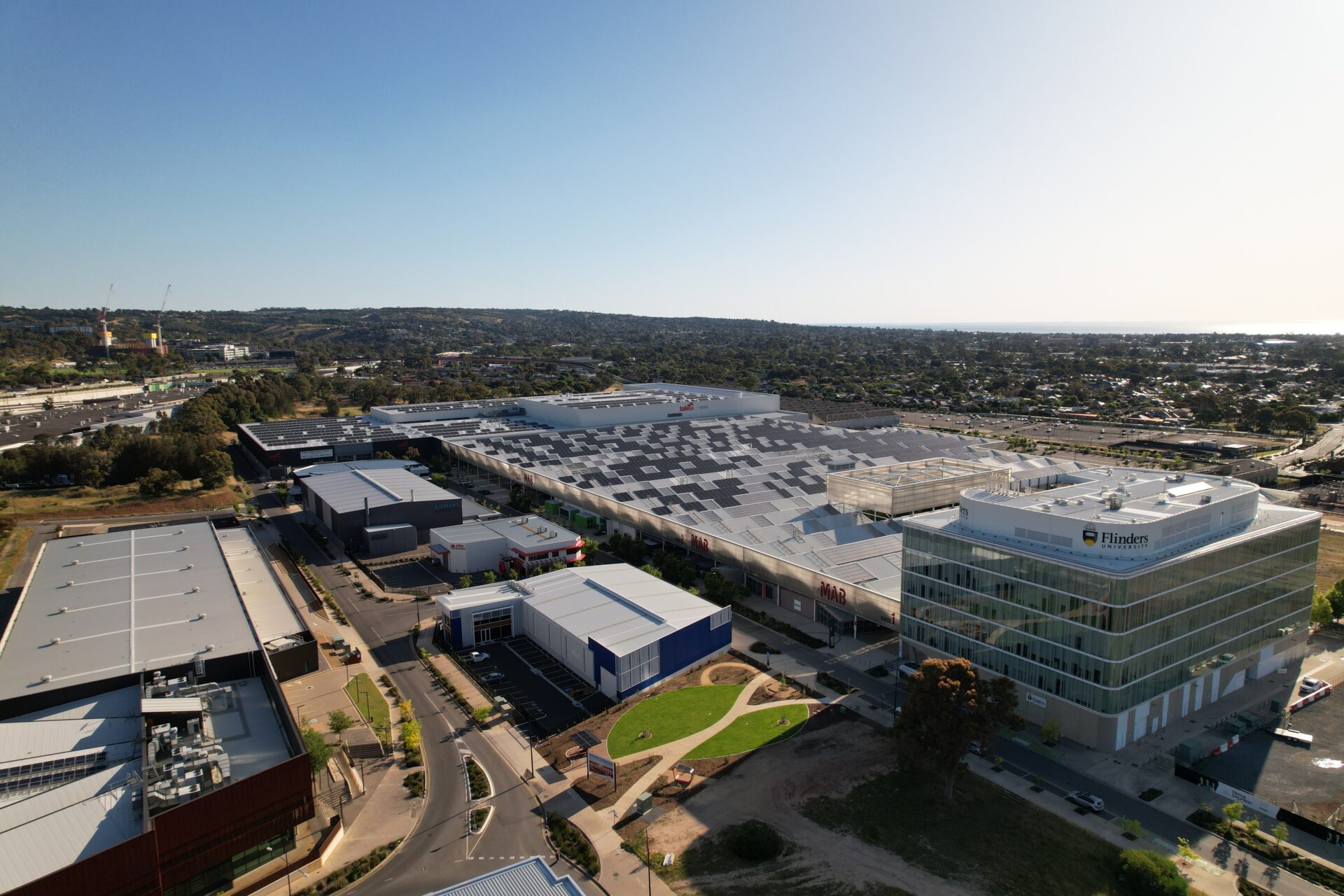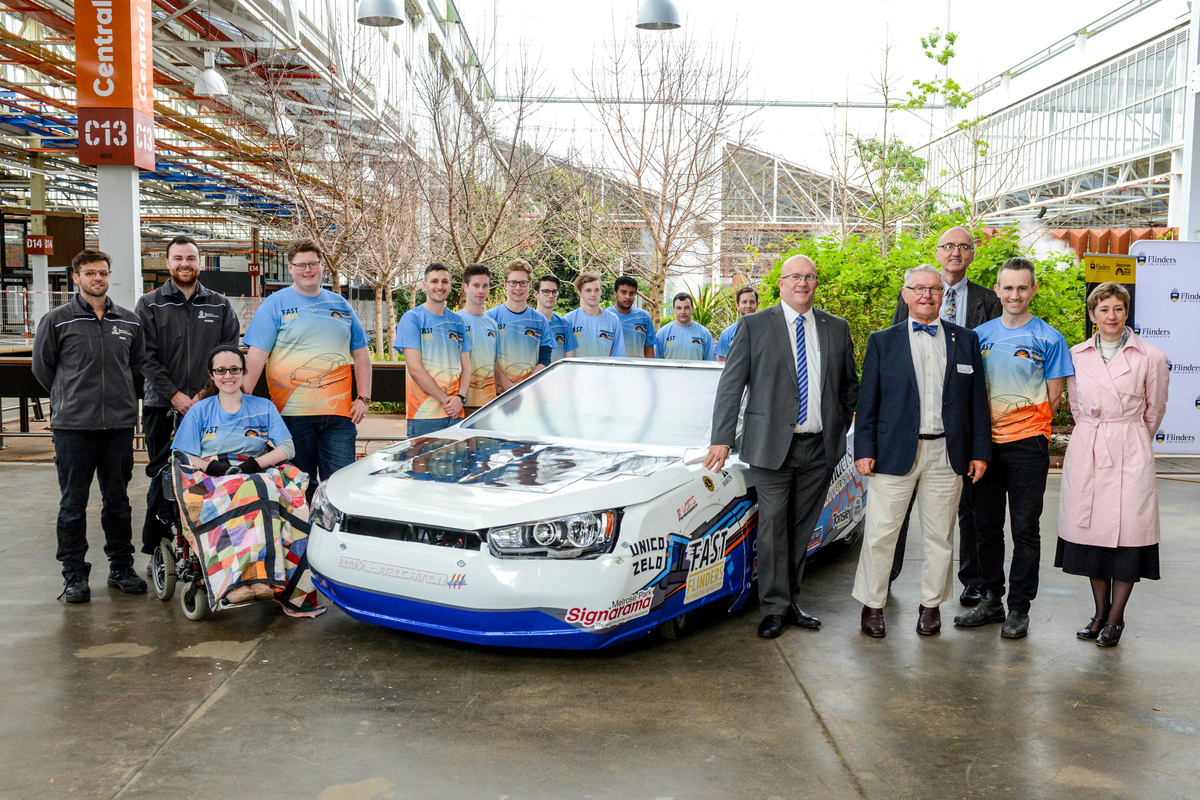Tonsley a launchpad for careers thanks to seamless blend of education and industry
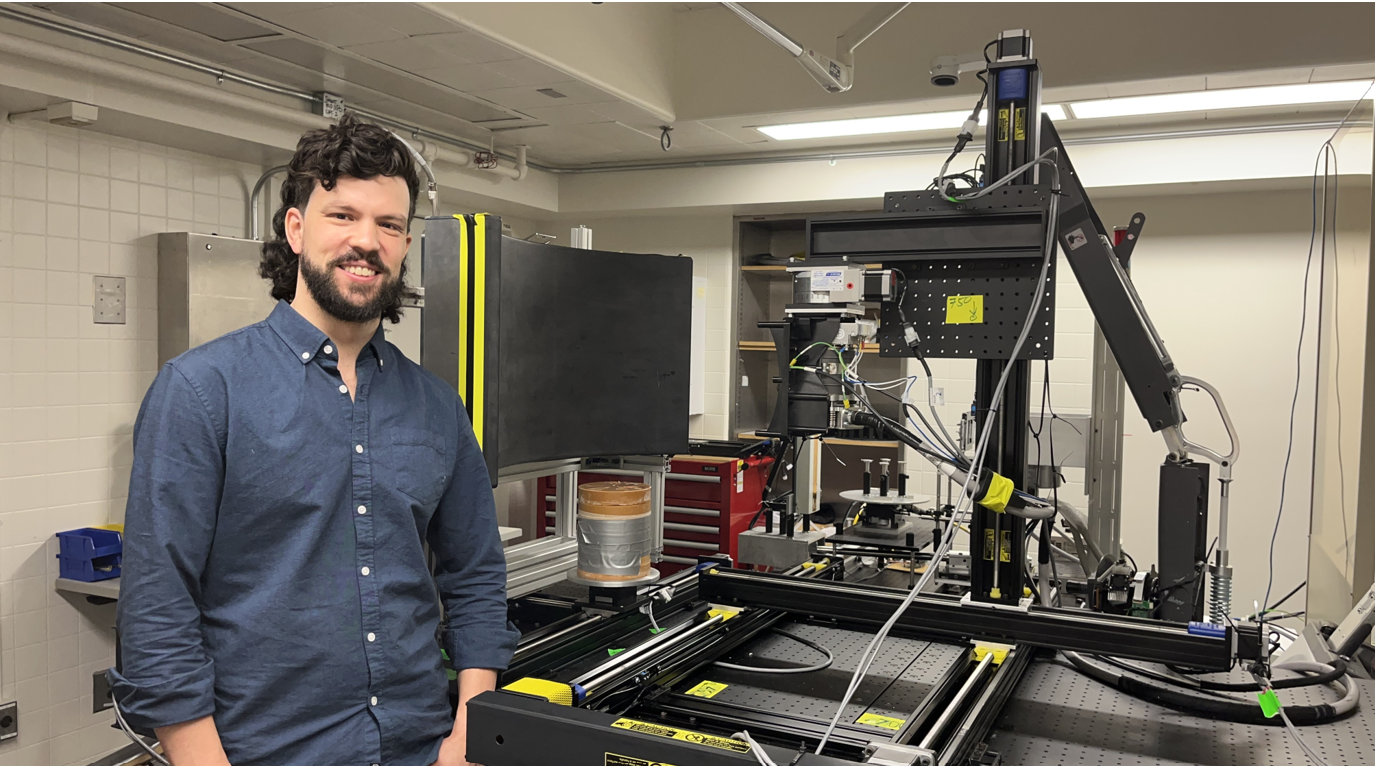
The nexus between higher education and industry is so strong at Tonsley Innovation District that, if you’re studying there, your career could turn out to be – quite literally – on your doorstep.
That’s proved true for Flinders University student Thomas McSkimming, who is combining his PhD studies in Biomedical Engineering with a career with Tonsley tenant and cutting-edge X-ray technology company Micro-X.
A 20-week work integrated learning program with Micro-X, set the stage for Thomas’ remarkable journey.
In under five years, he has progressed through his undergraduate studies, earning First-Class Honors degrees in Software Engineering and Biomedical Engineering in 2020.
Now, he’s on a temporary assignment in Baltimore, based at Johns Hopkins University where, as a part of his studies, he is working with a research group focused on developing imaging algorithms for Micro-X’s groundbreaking Mobile CT scanner.
"Having a hive of cool engineering businesses right where you’re studying is pretty unique and, at least for me, has been the defining feature of my professional and academic journey. Studying at Tonsley didn’t feel like an isolated stage before being allowed to enter the workplace, it was more of a seamless transition from education into a career."
Flinders University student Thomas McSkimming
“Thanks to being able to enter the workplace in a more transitionary nature, by the end of my undergraduate studies I actually felt like I deserved the title of Engineer.”
During his time at Micro-X, Thomas has been involved in the development of a number of products, from developing initial concepts to the first prototypes of the Micro-X Brain CT Scanner, a revolutionary scanner for use in ambulances for early stroke diagnosis, to the Micro-X Miniature Baggage Scanner, which is designed to enhance airport security with advanced X-ray technology to detect concealed threats inside carry-on luggage.
The journey began for Thomas during an orientation lecture for Flinders University’s 20-week integrated learning course, where he had the chance to hear from industry professionals. It was Chris Delnooz, Lead Systems Engineer at Micro-X, who left a lasting impression on Thomas, inspiring him to set his sights on joining the company.
"The whole thing is kind of amazing when you think about it. It all started with me walking across the courtyard and knocking on a door about doing a 20-week placement and now I am here in the USA. Micro-X has given me a lot of opportunity to have real world impact in industry while simultaneously advancing in the academic world."
Flinders University student Thomas McSkimming
“In the next year I will be graduating with my PhD from Flinders Uni, still with Micro-X and still working on the same device I developed the first prototype for in my honours year.”
Thomas’ role involves implementing software, designing and building robotic hardware, as well as coming up with new ideas for imaging algorithms, and then implementing, testing and proving them. He is currently working on an advanced version of the CT Brain Scanner prototype.
He has also since built a robotic CT test bench which is used to test the Brain CT Scanner to aid in the next stage of development which is helping correct X-ray scatter – the part of the X-ray beam that doesn’t travel in a straight line from the source to the X-ray detector.
“Getting stuck into real-world industry problems while still an undergraduate really gave me a leg up in my career,” Thomas said.
“I find myself at the intersection of urgent necessity and cutting-edge technology, positioned perfectly to create a solution that could significantly enhance the lives of countless people.”
Thomas’ supervisor at Flinders University, Associate Professor in Biomedical Engineering Egon Perilli, has seen firsthand the benefits of cross pollination between higher education and industry for students. Having been Thomas’ supervisor throughout his Honours project and now his PhD, he continues to be amazed by the growth and personal development shown since being exposed to an industry environment.
“We’ve observed that this setup allows students to gain invaluable experience while they study, which is always beneficial,” Egon said.
“Moreover, transitioning into the workplace often reveals a different side of our students, one that may not have surfaced during coursework. This shift could be attributed to their engagement with people at a different level.
“Rather than being immediately assessed on academic grounds, students have the opportunity to develop industry-informed research projects – which we believe is a more encouraging approach.
“The co-location aspect of Tonsley significantly fosters collaboration and crossover. It’s not uncommon for students to recommend utilising the Flinders Science and Engineering research facilities to companies, thereby enhancing collaboration opportunities even further.”
The symbiotic relationship between education and industry at Tonsley is mutually beneficial, with students gaining invaluable practical experience, while industry can leverage integrated learning opportunities to identify promising talent and potentially secure future employees seamlessly.
“It’s evident that the industry highly values the students emerging from our program here at Flinders,” Egon said.
“By being closely situated, it can offer graduates invaluable insights into personal development, fostering a mindset that encourages fresh perspectives and innovative thinking within the organisation, including a methodological approach to problem solving that is part of a research program during a PhD.
“Many students leave before pursuing their PhDs because they receive enticing offers from companies, which on one hand speaks volumes about the quality of our Engineering program. On the other hand, those that go further and pursue a PhD, like Thomas, get exposed to internationally relevant research and development opportunities during their PhD, which really speaks well for the program to have a global impact.”
Thomas’s trajectory from Tonsley to Baltimore serves as an example of the success that can emerge from an environment that seamlessly integrates education, research and industry. It not only highlights the potential for rapid career advancement but also underscores the global impact of individuals nurtured within Tonsley’s collaborative ecosystem.
About Tonsley Innovation District
As Australia’s first innovation district, the 61-hectare Tonsley Innovation District has become an exemplar for innovation precincts globally. Over the past decade, it has matured into a thriving innovation ecosystem that is home to nearly 2,000 employees with more than 8,500 students passing
Together at Tonsley
Related News
-
![]()
16 February 2021
Micro-X and MDPP winners at the 2020 SA Science Excellence and Innovation Awards
-
![]()
29 November 2016
Micro-X launches its revolutionary Nano
-
![]()
25 October 2023
Micro-x’s Capabilities Continue to Support Ukraine
-
![]()
18 September 2019
Major milestone for Micro-X
-
![]()
1 February 2014
Flinders University invests $120m in teaching and research at Tonsley
-
![]()
1 December 2013
Flinders University’s investment in Adelaide’s South
-
![]()
18 September 2019
Flinders students in the FAST lane
Stay up to date with the latest news, developments events and activities at Tonsley Innovation District
